This website uses cookies so that we can provide you with the best user experience possible. Cookie information is stored in your browser and performs functions such as recognising you when you return to our website and helping our team to understand which sections of the website you find most interesting and useful.
January 9, 2017
A Revolution Towards Renewable Energy Portfolio-wide
Sustainability Roundtable Inc.’s (SR Inc) Summit For Sustainable Operations V was held in Washington DC on December 7th and 8th. Member Executives of SR Inc’s Sustainable Business & Enterprise Roundtable (SBER) examined three mutually reinforcing “revolutions” making the Summit’s audacious theme “Regenerative Operations by 2030” plausible. Before the holidays, this blog discussed the Sustainably Healthy Workplace revolution, which emphasizes a renewed management focus on the human health impacts of real estate and operations. A second revolution examined at the Summit was the dramatic transition large enterprises are making towards renewable energy throughout their portfolios – across geographies, industries and sectors. Specifically, we examined the accelerating technical, market and regulatory change prompting most SBER Member-Clients to refrain from substantial energy transactions without first seeking to systematically consider alternative energy solutions and how these solutions can be integrated into their energy strategies.
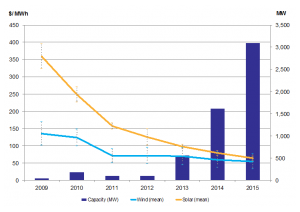
Roger Freeman is a member of SR Inc’s Advisory Board who has led at the intersection of renewable energy development, procurement, financing, law and regulation for more than two decades. Mr. Freeman is a Principal Adviser in SR Inc’s Renewable Energy Procurement Services (“REPS’) and assists in advising SBER Member-Clients on incorporating alternative energy solutions into their energy strategies. At the Summit, Mr. Freeman illuminated the dramatic technical, market and regulatory change prompting corporate decision-makers to act timely on alternative energy solutions. He explained how Member-Clients have, in many instances, embraced portfolio-wide renewable energy as a defining feature of their enterprise-wide commitment to sustainability. In fact, more than a dozen Member-Clients have joined scores of companies who have publicly committed to 100% renewable energy. Roger shared how many Member-Clients have recognized that, for a growing number of energy users, both on- and off-site renewable energy can be justified on the basis of risk and cost management, without recourse to reputational benefits. Since Member-Clients have found that both on- and off-site renewable energy provides meaningful reputational benefit among employees, customers, investors and regulators, the fact that many are now also convinced of renewable energy’s merit for risk and cost management purposes has made the scaling adoption of renewable energy inevitable.
This is unmistakably part of a larger trend beyond SBER extraordinary Member-Client companies. More than 80 global corporations have publicly announced their commitment to powering all of their global operations with 100% renewable energy. Meanwhile, in the U.S., the important Federal Investment Tax (for solar development) and Production Tax Credits (for wind development) will both decline before the 2020 elections and are unlikely to be restored or renewed under the incoming administration.
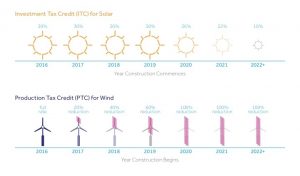
Consequently, Mr, Freeman reported that Member-Clients are acting to realize three time sensitive advantages for procuring renewable energy: (a) advancing towards their Greenhouse Gas (GHG) reduction goals; (b) achieving cost savings against expected conventional prices; and (c) creating long-term energy price hedges through scaled off-site transactions. He summarized how SBER Member-Clients have seized the best renewable energy opportunities available to them through a 4-step process:
- Develop an energy procurement strategy educated to the technical, market and regulatory change reshaping local and global energy markets and aligned with enterprise sustainability goals
- Prioritize markets with increasing conventional energy price risk and renewable energy opportunities
- Quantify on-site and off-site opportunities through a managed, multi-stage RFI/RFP process drawing from dozens of qualified and referenced providers scored in all relevant respects
- Explicate “Best and Final” financial proposals that advance a multi-year strategy through comprehensive Letters of Intent (LOI) detailing price supporting “most favored nation” terms.
Mr. Freeman then detailed leading Member-Client management best practices in building enduring success with a smart portfolio-wide energy strategy:
- Take a portfolio approach, increasing scale to maximize efficiencies and savings
- Engage facilities/regions early to ensure buy-in and understanding of the process
- Ensure C-level and business unit support to maintain momentum, accountability and organizational buy-in
- Identify a primary point of contact to drive deals forward with all internal functions (e.g. legal, finance, accounting)
- Develop transparency and open communication internally and with project partners including multi-stakeholder pacing meetings
- Engage expert resources early to avoid false starts and minimize risks to the enterprise and sponsoring executives
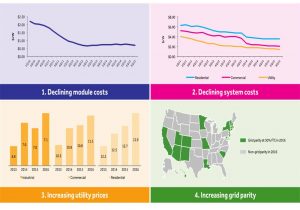
By employing these best practices, Mr. Freeman concluded that Member-Clients in higher-priced electricity markets and U.S. jurisdictions favorable to onsite solar, who have appropriate controlled sites and are willing to sign 15 to 25-year Power Purchase Agreements (PPAs), can expect to see significant energy savings on solar power compared with current conventional energy spend. SR Inc has advised Member-clients with multiple relevant sites who drive PPA deals winning them six figure savings in year one and millions in savings over 15 or 20 year terms even while retaining valuable RECS to win GHG reduction credit.
As the representative of top corporate off-takers, SR Inc has worked with dozens of leading alternative energy suppliers. One provider across solution categories which is regularly selected by SBER Member-Clients for competitive bids managed by SR Inc (or others) is NRG. Consequently, SR Inc has been pleased to partner with NRG Energy, Inc. as a SBER Premier Thought Leader to help Member-Clients understand, in greater detail, the opportunities and challenges inherent in our new energy reality.
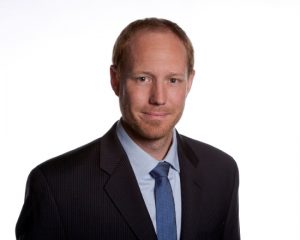
To assist SBER Member-Clients as a Premier Thought Leader, NRG’s Kevin Prince, Senior Director of Commercial & Industrial Renewable Energy Development, provided an overview of renewable energy procurement types, highlighting the differences between onsite, wholesale, and community solar purchases in terms of type, term, land requirement, size, additionality, and RECs. He also summarized the risks and benefits of partnering with different financing entities, ranging from sophisticated companies to much smaller and more informal finance partners. Kevin then provided a pros and cons comparison of the three procurement options. Mr. Prince concluded with a discussion of the “three R’s of solar” – rates, regulatory incentives, and resource – and the key factors one must consider when making strategic decisions about solar.
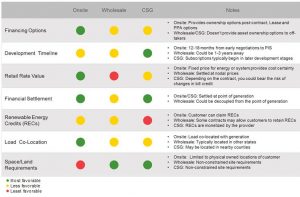
Following this presentation, Sean Kinghorn, Senior Sustainability Program Manager at Intuit, discussed how he helped lead the global software provider in implementing many of the best practices Roger and Kevin introduced. Sean provided insight into how he created needed and unusual success for renewable energy procurement in leased space, and specifically, how he did it through a single, relatively short term (i.e. 8 year), Power Purchase Agreement that aggregated the demand of multiple leased sites at Intuit’s Headquarters. Consistent with Intuit’s corporate commitment to ‘Be Bold” and “Delight the Customer,” Sean pioneered renewable energy for leased space to delight his internal customers, who are the business unit leaders and talent the rapidly growing company needs to recruit and retain. Consistent with Intuit’s commitment to sustainability, Sean noted that the physics of climate change remain indifferent to the business case for emissions reduction. With targets for a 50% reduction in Scope 1, 2 and 3 emissions by 2025 and 80% by 2050 (from 2012 levels), Intuit must take bold action, including achieving its goal for 100% renewable energy by 2030. Intuit’s success serves as a strong case for setting bold, multiple bottom-line targets and innovating to meet or exceed them to manifest corporate leadership aligned with science.
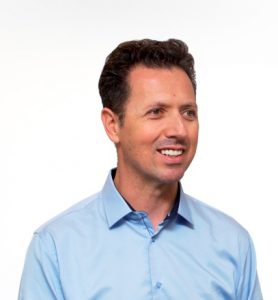
NRG’s Vice President of Sustainability, Bruno Sarda, concluded the Summit’s renewable energy track, discussing the role NRG sees for itself in creating a sustainable energy future and the opportunities for partnerships that can provide mutual benefit to all those interested in advancing renewable energy. In addition to science-based carbon emissions reduction targets of its own, NRG aims to help customers with their sustainability goals through advising on and making available solutions for renewable energy, demand response, load reduction and a number of other initiatives. Through collaborative and strategic partnerships, NRG hopes to achieve its vision for a “sustainable energy future that provides reliable, cleaner power that enhances people’s lives and delivers value to stakeholders.” SR Inc is pleased to be one of these partners and looks forward to continuing to advise and empower Member Executives to move from “managing costs” to “sustainable leadership” that creates enduring business value in an increasingly global and resource constrained economy, so that by 2030, the idea of regenerative corporate operations will be a matter of course in the more sustainable economy SBER Member-Clients are helping to create now.
The slides from the Summit for Sustainable Operations V can be found on SR Inc’s Digital Library here. Additional select relevant Executive Guidance from our Digital Library can be found below.
Select Relevant SBER Executive Guidance & Tools:
- Member Advisories:
- Member Briefings
- Solar Power Purchase Agreements (SPPAs)
- International Markets for Renewable Energy Certificates (RECs)
- Managing the Changing Water-Energy Nexus
- Impact of Renewable Energy Purchases on Reporting
- International Renewable Energy Markets: 2016 Update
- Market Structure for Conventional and Renewable Energy
- Presentations:
 As a Senior Manager of Research & Consulting at SR Inc, Kelsey Wallace supports research, development and implementation of enterprise sustainability strategies for companies that recognize the business imperative of more sustainable operations in the face of climate change and an increasingly resource-constrained world. Prior to joining Sustainability Roundtable, Inc., Kelsey worked for an environmental/engineering consulting firm where she supported clients including the U.S. Environmental Protection Agency and the U.S. Green Buildings Council to promote sustainable buildings, clean energy, and safe drinking water. Kelsey also devoted a year to national service with the AmeriCorps National Civilian Community Corps, where she worked on team-based conservation and community development projects throughout the Southwest United States. Kelsey has her B.A. in Environmental Studies from Connecticut College.
As a Senior Manager of Research & Consulting at SR Inc, Kelsey Wallace supports research, development and implementation of enterprise sustainability strategies for companies that recognize the business imperative of more sustainable operations in the face of climate change and an increasingly resource-constrained world. Prior to joining Sustainability Roundtable, Inc., Kelsey worked for an environmental/engineering consulting firm where she supported clients including the U.S. Environmental Protection Agency and the U.S. Green Buildings Council to promote sustainable buildings, clean energy, and safe drinking water. Kelsey also devoted a year to national service with the AmeriCorps National Civilian Community Corps, where she worked on team-based conservation and community development projects throughout the Southwest United States. Kelsey has her B.A. in Environmental Studies from Connecticut College.

